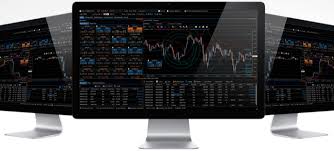
Forex Trading Basics: What You Need to Start
With the increasing accessibility of global financial markets, forex trading has emerged as a popular avenue for individuals looking to diversify their income streams. Known as the largest financial market in the world, the forex (foreign exchange) market facilitates the exchange of currencies around the clock. If you’re intrigued by the idea of entering the Forextrading arena, here’s a beginner-friendly breakdown of what you need to get started.
Understanding Forex Trading
Forex trading involves the buying and selling of currency pairs, such as EUR/USD or GBP/JPY. Currency pairs represent the exchange rate between two currencies. When traders believe that one currency will strengthen relative to another, they buy the pair. Conversely, when they predict a currency will weaken, they sell the pair.
Unlike stocks, forex trading takes place in a decentralized market, meaning there is no central exchange, and trading is conducted over-the-counter through a network of banks, brokers, and institutions. This setup allows forex markets to remain open 24 hours a day, five days a week, catering to traders across all time zones.
What’s Needed to Start Forex Trading?
1. A Fundamental Understanding of Forex
Before jumping into forex trading, understanding the key concepts and mechanics of the market is crucial. Familiarize yourself with essential terms such as pips (price movements), lots (trade size), spreads (difference between bid and ask price), and leverage (borrowing capital to increase potential returns). Numerous online resources, courses, and demos are available to bring you up to speed with these concepts.
2. An Online Trading Platform or Broker
Choosing a reliable online trading platform or broker is one of the most critical steps in your forex trading journey. This platform will serve as your gateway to the market, allowing you to execute trades and analyze charts. When evaluating brokers, pay attention to features like user-friendly interfaces, access to educational tools, risk management options, and flexible leverage.
3. Capital to Trade
Starting forex trading requires an initial deposit. However, you don’t necessarily need a large upfront investment. One of the appealing aspects of forex trading is its accessibility to traders with varying budgets, thanks to micro or mini accounts offered by brokers. Always trade with capital you can afford to risk, as forex trading carries inherent financial risks.
4. A Strong Risk Management Strategy
Risk management ensures that your trading activities are sustainable over time. Features such as stop-loss orders and position sizing can help you minimize potential losses and prevent overexposure in volatile markets. Developing a trading plan that includes risk/reward ratios and capital allocation methods will create a disciplined trading approach.
5. Access to Market Analysis Tools
Market analysis is a pillar of successful forex trading. Traders often use two primary forms of analysis:
• Technical Analysis involves studying price charts and indicators like moving averages, candlestick patterns, and Fibonacci retracements to identify trends and patterns.
•
• Fundamental Analysis looks at macroeconomic factors, like interest rate movements or geopolitical events, to determine the underlying value of currencies.
•
Many trading platforms provide built-in analysis tools, news feeds, and forecast updates to help you make informed trading decisions.
6. Patience and Practice
Patience is an attribute often underestimated in forex trading. Success in this field relies on not just knowledge but also emotional discipline and consistent practice. Most brokers offer demo accounts, which allow you to practice trading without risking real money. Use this opportunity to experiment with strategies and build confidence.
Why Forex Trading?
Forex trading has captured the attention of millions due to its accessibility, high liquidity, and global scope. For many, its round-the-clock nature provides the flexibility to trade at their convenience. The market’s potential for significant returns can be attractive, but it’s important to approach trading with a realistic mindset, understanding that the learning curve and risks are part of the process.
Investing time in building a solid foundation and adopting a disciplined approach is the best way to maximize your potential in this dynamic market. Whether you’re aiming to generate supplemental income or broaden your financial portfolio, forex trading offers you a platform to explore the global economy through the lens of currencies.